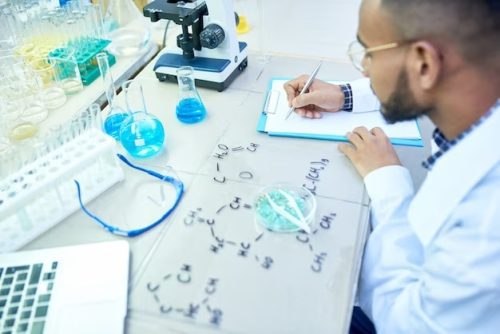
Biological Sequence Analysis using R Programming
Unlock the Power of Genomic Data with R Programming
The “Artificial Intelligence for Cancer Drug Delivery” program delves into the integration of AI technologies in the development and optimization of cancer therapies. Participants will explore how machine learning algorithms, neural networks, and big data analytics are revolutionizing the design, testing, and delivery of cancer drugs. Through a combination of theoretical knowledge and practical applications, the program aims to provide a comprehensive understanding of the intersection between AI and oncology.
This program will cover key topics such as predictive modeling, drug efficacy prediction, patient-specific treatment plans, and the use of AI in identifying new therapeutic targets. By the end of the course, participants will be adept at using AI tools to analyze vast datasets, predict outcomes, and design more effective and personalized cancer treatments. The curriculum is designed to bridge the gap between computational technologies and clinical applications, ensuring that graduates are well-equipped to contribute to advancements in cancer treatment.
Aim: To empower participants with the knowledge and skills to leverage artificial intelligence in the field of cancer drug delivery, enhancing treatment precision and efficiency through advanced computational methods and data analytics.
Program Objectives:
- Understand the fundamentals of AI and machine learning.
- Explore the application of AI in cancer drug discovery and development.
- Learn to use AI tools for predictive modeling and data analysis.
- Develop skills in designing personalized treatment plans using AI.
- Gain practical experience through case studies and project work.
What you will learn?
Module 1:
- Introduction to R studio
- Installing requisite libraries
- Read and Store DNA sequences
- Transform, Find motif and basic statistics
Module 2:
- Analysing Protein Properties
- MSA with R
- Phylogenetic Tree Construction in R
- NJ tree, Bootstrapping
Module 3:
- Introduction to Bioconductor
- Differential gene expression analysis of RNA seq
- Heat map generation
- Functional annotation
Requirement: The program is meant for participants with moderate level of programming proficiency or
with basic idea of R . Requirement any OS with latest version of R and R studio installed
Intended For :
- Undergraduate degree in Biotechnology, Computer Science, Bioinformatics, or related fields.
- Professionals in the pharmaceutical or healthcare industries.
- Individuals with a keen interest in the application of AI in medical research
Career Supporting Skills
